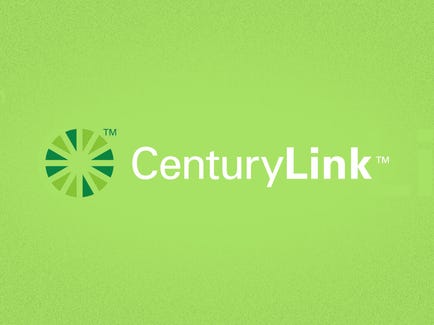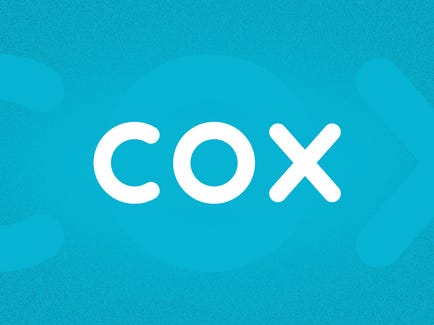CenturyLink vs. Cox: Which Is the Better Home Internet Provider?
Cox's cable internet service presents more plan options, but Quantum Fiber from CenturyLink is the better value.


If Cox and CenturyLink are internet options in your area, the better choice between the two will largely come down to which CenturyLink connection type, fiber or DSL, is available at your address. A quick rule of thumb is that fiber internet is slightly better than cable (Cox is cable internet) and cable is considerably better than DSL.
So if CenturyLink's fiber service, Quantum Fiber, is available, I'd likely recommend it over Cox. On the other hand, if your address is only eligible for DSL service from CenturyLink, the cable connection you get with Cox will deliver faster, more reliable speeds and a better overall value.
That said, there may be a scenario where CenturyLink's simple, low-cost DSL service makes more sense for your home than Cox. Or perhaps Cox, with its many plan options and unique add-on for online gaming, is the better choice over the limited high-speed internet options that come with CenturyLink's fiber service.
Locating local internet providers
So which is best, Cox or CenturyLink, for your home? I'll cover all the specifics of each provider below, including availability, plans and service details like contracts and data caps, to help you decide which is the best internet provider for your home.
CenturyLink
Worth a look, even if fiber is unavailable
Our take - Quantum Fiber offers two fiber plans: 200Mbps at $50 per month or gig service at $65 per month. Both plans are a better value than comparable plans from Cox and come with much faster upload speeds.
Cox Communications
Lots of plan options, but all are a bit pricey
Our take - As a cable internet provider, Cox can offer the same plans in all service areas, though exact speeds and pricing may vary slightly from market to market. Either way, Cox typically has five or six plans, along with many bundle options if you want to get internet and TV together.
Centurylink's DSL service area, displayed in pink, reaches more areas than Quantum Fiber (purple) and Cox (green), though a recent sale to Brightspeed could downsize CenturyLink's DSL and fiber service in 20 states.
CenturyLink and Cox serviceability
Despite being the third largest cable internet provider in the US, Cox has a relatively small coverage area with service mostly reserved to a few cities. CenturyLink has a significantly larger coverage area than Cox, but serves as more of a suburban and rural internet provider via its DSL network.
Locating local internet providers
Though CenturyLink and Cox generally operate in different regions, there are a few locations where serviceability overlaps between the two, including:
- Phoenix, Arizona
- Fayetteville, Arkansas
- Fort Smith, Arkansas
- Topeka, Kansas
- Wichita, Kansas
- Lafayette, Louisiana
- Omaha, Nebraska
- Las Vegas, Nevada
Again, Lumen Technologies sold portions of its networks to Brightspeed, so select areas may no longer be serviceable for CenturyLink DSL or Quantum Fiber.
CenturyLink vs. Cox plans and pricing
Cox's cable network gives it the flexibility to offer a number of speed tiers, including a decent prepaid internet plan. While fiber-optic lines present the same speed potential or better, CenturyLink's fiber service does not offer quite the same speed or plan variety as Cox. Options are further limited for CenturyLink DSL customers, who may only have one speed available.
CenturyLink internet plans
| Plan | Starting monthly price | Max speeds | Equipment fee | Data cap |
|---|---|---|---|---|
| Simply Unlimited (DSL) | $50 | 140Mbps down, 40Mbps up | $15 (skippable) | 1TB |
| Quantum Fiber 200 | $49 | 200Mbps down, 200Mbps up | $15 (skippable) | 1TB |
| Quantum Fiber Gigabit | $65 | 940Mbps down, 940Mbps up | None | 1TB |
CenturyLink doesn't do promotional pricing, so there's no guaranteed price increase after 12 months or other predetermined period. That's not to say your price won't ever go up, but there isn't a looming price increase to look forward to down the road.
Another thing to note with CenturyLink, particularly the DSL service, is that available speeds vary by location. So while 140Mbps is the max offered, your address may only be eligible for speeds of say, 40Mbps.
Only around 28% of households can get CenturyLink DSL speeds of 100Mbps or higher. Roughly a third may not even be eligible for speeds that could be considered broadband (25Mbps down, 3Mbps up). However, the starting monthly price is the same regardless of the available speed at your address.
Cox internet plans
| Plan | Starting monthly price | Standard rate (after 12 months) | Max speeds | Equipment fee | Data cap |
|---|---|---|---|---|---|
| Essential 100 | $50 | $50 | 100Mbps down, 5Mbps up | $13 (skippable) | 1.25TB |
| Preferred 250 | $60 | $84 | 250Mbps down, 10Mbps up | $13 (skippable) | 1.25TB |
| Ultimate 500 | $70 | $100 | 500Mbps down, 10Mbps up | $13 (skippable) | 1.25TB |
| Gigablast | $80 | $120 | 940Mbps down, 35Mbps up | $13 (skippable) | 1.25TB |
Cox plans come with a one-year contract if you want the lowest introductory pricing (listed above). While you can opt for no contract, Cox will charge an extra $10 or more each month for the first year, adding to rates that are already somewhat high.
So which is the better value? Compared with CenturyLink's fiber service, Cox's average cost per Mbps is higher (24 cents compared with just 16 cents with Quantum Fiber). There's also the price increase to consider, as Cox plans are guaranteed to go up after the first year while CenturyLink's may not.
As for Cox versus CenturyLink's DSL service, you'll likely find Cox to be the better value. DSL plans from CenturyLink average out to a dollar per Mbps -- not bad for DSL service, but obviously higher than the average pricing with Cox. That said, if your home is eligible for CenturyLink's fastest DSL plans of 100Mbps or higher, the starting price of $50 per month may be a better deal than Cox's lowest speed tier.
Comparing CenturyLink and Cox service details
Pricing and speeds are certainly the two most important factors when comparing ISPs, but you'll want to be mindful of what else comes with service before committing to one over the other. Here's what to expect as far as added fees, contract requirements and data caps from each.
Wi-Fi equipment and fees
Both providers offer equipment rental and will provide a gateway device suitable for your plan and connection type. Cox's equipment rental fee comes in a bit cheaper at $13 per month compared with CenturyLink's fee of $15, but it's worth noting that CenturyLink includes equipment at no extra cost with its gigabit plan.
Both providers give you the option to use your own compatible equipment and skip the monthly fee. Just know that doing so could mean limited technical support from your provider, not to mention the upfront costs of purchasing a new router if you don't already own one.
Contracts and data caps
You don't have to sign a contract with either provider, but whereas CenturyLink simply doesn't require contracts at all, Cox requires customers to sign a one-year contract to get the lowest introductory pricing. If you do sign a one-year service agreement with Cox and cancel service before it's up, expect an early termination fee of $120, regardless of how long is left in your contract when you cancel.
You can also expect overage fees from Cox for exceeding your data allowance. All Cox plans come with a monthly data cap of 1.25TB, which is actually a lot of data -- during a period of the pandemic the average home used less than half of that, around 435GB per month. But with heavy HD and 4K streaming, along with connecting numerous devices, that 1.25TB limit is certainly within reach. Should you go over more than once (the first incident is free of charge, courtesy of Cox), you'll be charged $10 per 50GB block of data you go over, up to a max of $100.
CenturyLink plans also come with a data cap, 1TB per month, but there is no fee for going over. You'll still want to be somewhat mindful of your data usage, however, as frequent or excessive overages could violate CenturyLink's terms of service and excessive use policy.
Customer satisfaction numbers are average at best
What do actual CenturyLink and Cox customers think of their service? American Customer Satisfaction Index scores indicate the two providers fare about the same, and slightly below the industry average. In the most recent ACSI ratings, from 2022, Cox had the slight advantage with a 61/100 compared with CenturyLink's 60, but both providers dropped by two points year-over-year.
Both providers fell below the industry average in 2021 and 2022, so it seems they both have room for improvement.
CenturyLink vs. Cox recap
When comparing CenturyLink versus Cox, the better provider for your home will probably come down to which CenturyLink connection type is available at your address. If that's fiber, CenturyLink will offer more speed for the money along with the inherent advantages fiber-optic has over cable, such as superior reliability and symmetrical upload and download speeds. On the other hand, if your address is only available for DSL service, Cox will be your best bet for speeds over 100Mbps and better value overall. Just be prepared to sign a one-year contract to get the lowest pricing.
Cox vs. CenturyLink FAQs
What's the difference between Cox and CenturyLink?
The main difference between the two ISPs is the type of network they use. Cox primarily employs a coaxial cable network, which enables the provider to offer four download speed tiers ranging from 100Mbps to 940Mbps. Upload speeds are significantly slower, however, ranging from 5 to 35Mbps depending on the plan you choose. Cable internet is also somewhat vulnerable to network congestion, meaning customers may experience slightly slower speeds during peak usage times.
CenturyLink uses either a copper-based DSL or fiber-optic network. Fiber internet allows for faster upload speeds than cable (both CenturyLink's Quantum Fiber plans offer symmetrical max download and upload speeds of 200 or 940Mbps) and is less susceptible to network congestion.
Fiber internet's biggest drawback is availability, and CenturyLink has one of the smaller fiber networks of any major ISP. Its DSL network covers a much larger area, though max speeds will be significantly slower and less reliable than cable or fiber internet.
Is Cox or CenturyLink cheaper?
Cox and CenturyLink (DSL and Quantum Fiber included) share the same starting price at around $50 per month. Quantum Fiber offers faster max download speeds for that price, however, up to 200Mbps compared to the 100Mbps that comes with the Cox Essential plan.
CenturyLink has the cheaper gigabit plan with a starting price of $70 compared to the $80 ($120 after the first year) you'll pay with Cox. Additionally, CenturyLink includes equipment rental at no extra cost with gig service, whereas a $13 fee applies to all Cox plans should you choose to rent your equipment.
Is Cox or CenturyLink faster?
Both providers offer gig service with max download speeds up to 940Mbps or higher in select areas. CenturyLink's Quantum Fiber service also has the ability to deliver symmetrical upload speeds, whereas Cox upload speeds max out at around 35Mbps.
So other than upload speeds, Cox and Quantum Fiber are pretty evenly matched when it comes to max speeds. Cox is the clear winner when compared to CenturyLink's DSL service, however, as the DSL service can only reach max speeds of 20 to 140Mbps.
Home Internet Guides
- Sometimes a provider is available in your Zip code, but not at your exact address
- See what exact plans are available at your home


